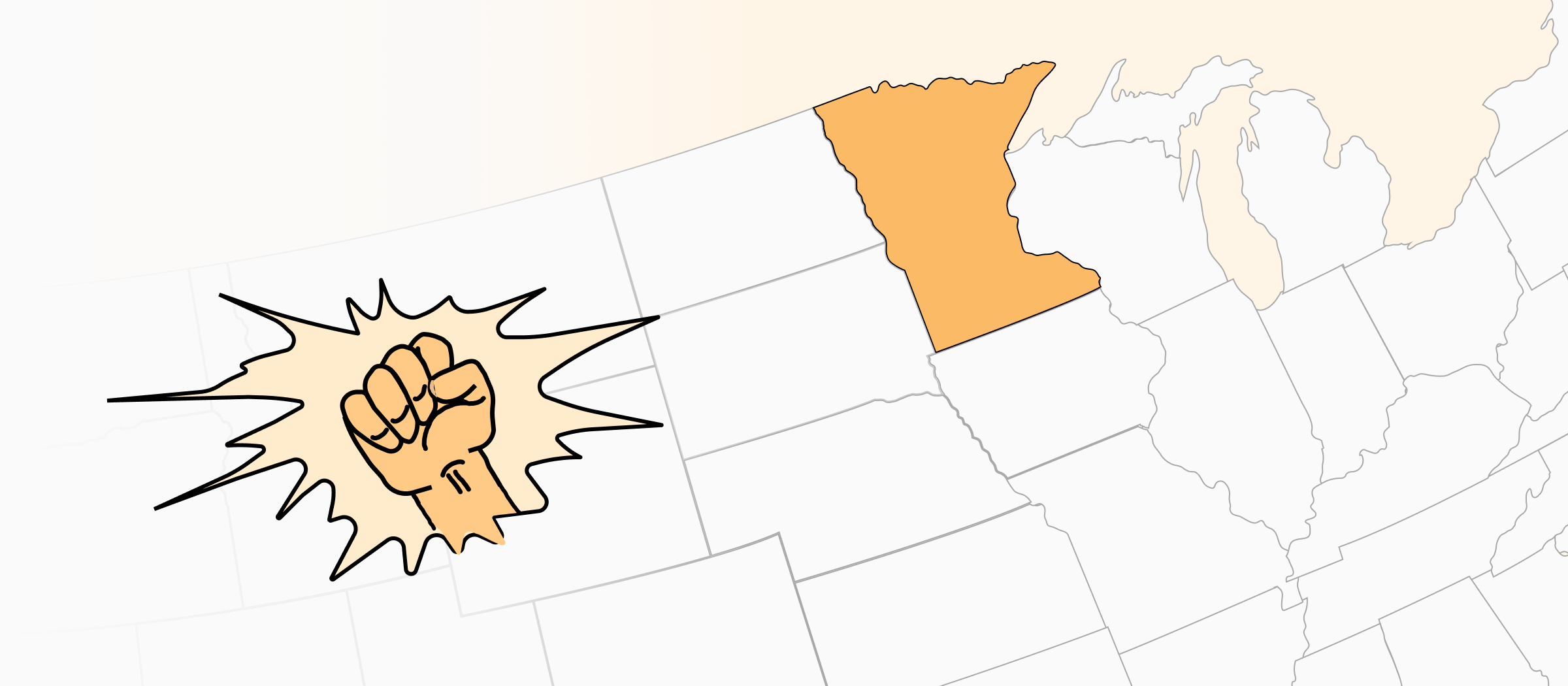| Tenant Protected Actions |
|
| Landlord Retaliatory Actions |
|
| Penalties for Retaliation |
|
When Is It Illegal for Landlords To Retaliate in Minnesota?
Minnesota landlord are prohibited from taking the following actions in retaliation against a protected tenant action:
- Filing eviction or threatening the tenant with eviction
- Increasing the tenant’s obligations under the lease
- Decreasing services provided to the tenant
- Altering an existing rental agreement
- Contacting state or federal law enforcement regarding the tenant’s immigration status
When taking any of the above actions, the landlord has to prove non-retaliatory intentions if any protected tenant action has taken place fewer than 90 days prior. The following tenant actions enjoy protection against landlord retaliation:
- Reporting a code violation to a responsible government entity
- Reporting a violation of a code or landlord-tenant law to a community or news media organization
- Seeking assistance, especially from a community or news media organization, regarding a violation of code or landlord-tenant law
- Asking the landlord to make legally required repairs, remedy a regulatory violation, or keep the terms of the lease
- Joining a tenant organization or trying to join one
- Testifying about the condition of the premises
- Exercising any legal right or remedy
What Can Tenants Do in Response in Minnesota?
Minnesota tenants can use retaliation as a defense against a landlord in court, or sue the landlord for retaliatory actions. If the court agrees the landlord’s intention was retaliatory, or if the landlord can’t prove non-retaliatory intentions for actions within 90 days of a complaint, the court will nullify any eviction actions and the tenant may recover $1,000 in damages per occurrence of retaliation, plus reasonable attorney fees.
Sources
- 1 Minn. Stat. § 504B.212(2)(a)
-
A landlord may not increase rent, decrease services, alter an existing rental agreement, file a legal action against a tenant, contact federal or state law enforcement related to a tenant’s immigration status, or seek to recover possession or threaten any such action in whole or in part in retaliation after a tenant:
(1) reports a code violation to a government agency, elected official, or other government official responsible for the enforcement of a building, housing, health, or safety code;
(2) reports a building, housing, health, or safety code violation, or a violation of this chapter, to a community organization or the news media;
(3) seeks the assistance of a community organization or others, including but not limited to a media or news organization, for assistance with a code violation or a violation of this chapter;
(4) makes a request that the landlord of a residential building make repairs to the premises as required by this chapter, or remedy a building or health code, other regulation, or uphold portions of the residential rental agreement;
(5) joins or attempts to join a tenant association or similar organization; or
(6) testifies in any court or administrative proceeding concerning the condition of the premises or exercised any right or remedy provided by law.
Source Link - 2 Minn. Stat. § 504B.212(2)(b) & (3)
-
(b) In any proceeding in which retaliation is alleged, the burden of proof shall be on the landlord, if the landlord’s alleged retaliatory action was within 90 days of the tenant engaging in any of the activities identified in this subdivision. If the challenged action began more than 90 days after the resident engaged in the protected activity, the tenant claiming the landlord is retaliating has the burden of proof.
Subd. 3. Penalties. If a landlord, an agent, or other person acting under the landlord’s direction or control unlawfully and in bad faith violates this section, the tenant may recover from the landlord up to $1,000 per occurrence and reasonable attorney fees.
Source Link

